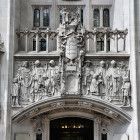Underwood v Wincanton Plc: whistleblowing and the meaning of public interest
Ted Flanagan, 30th April, 2017
Last November, we looked at the case of Chesterton Global v Nurmohamed, which centred on the public interest test in whistleblowing legislation. This had in 2013 replaced the old requirement that a protected disclosure be made ‘in good faith’.
In the Chesterton case, the disclosure had been about commission payments where around 100 people were affected.
The Employment Appeal Tribunal (EAT) found that, because this amounted to a section of the public (albeit a very limited and narrow section), the ‘public interest’ test was satisfied.
Underwood v Wincanton Plc
Underwood was a lorry driver who complained that overtime was not being distributed fairly in breach of the contracts of employment of him and three others.
Initially, this claim was struck out by the Tribunal because it didn’t pass the public interest test. But by the time it came to the EAT Chesterton Global had been reported, so the original decision was reversed.
This meant that Underwood’s disclosure about four people satisfied the public interest test.
Having said all that, Chesterton itself is going to the Court of Appeal in October this year. So it may be that this perhaps unhelpful line of authorities is going to be turned around.
What this means for you
Whistleblowing claims are not commonplace. And in the past have been an area, like discrimination claims, that was only examined in detail by individuals with less than two years’ service.
It had been thought that the public interest test would plug a hole in the law. But for the time being, you simply need to remember that whistleblowing claims are easier to bring than you may have imagined.
Need advice? Get in touch today
Please call Ted Flanagan on 01482 324252.
Or email Ted here.
You can find out more about our Employment Law services here.


